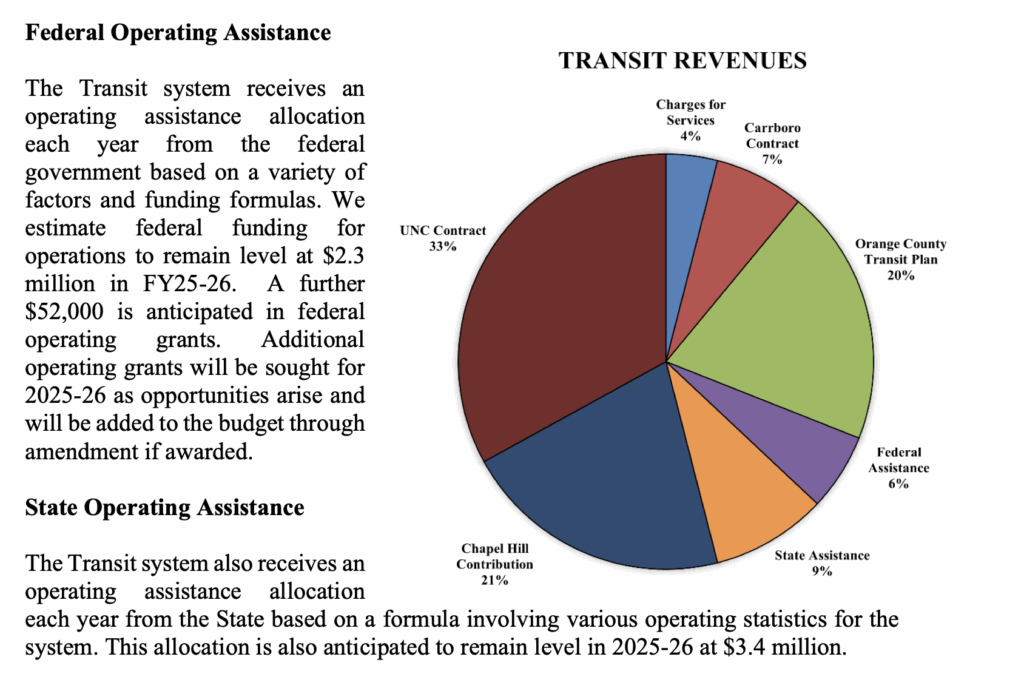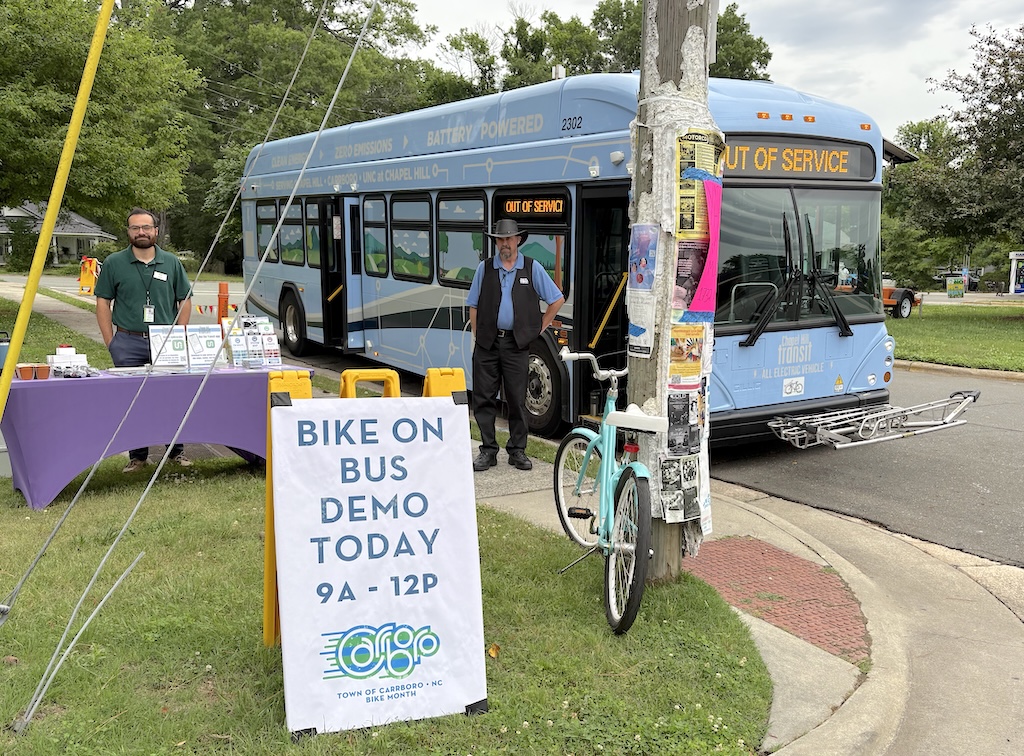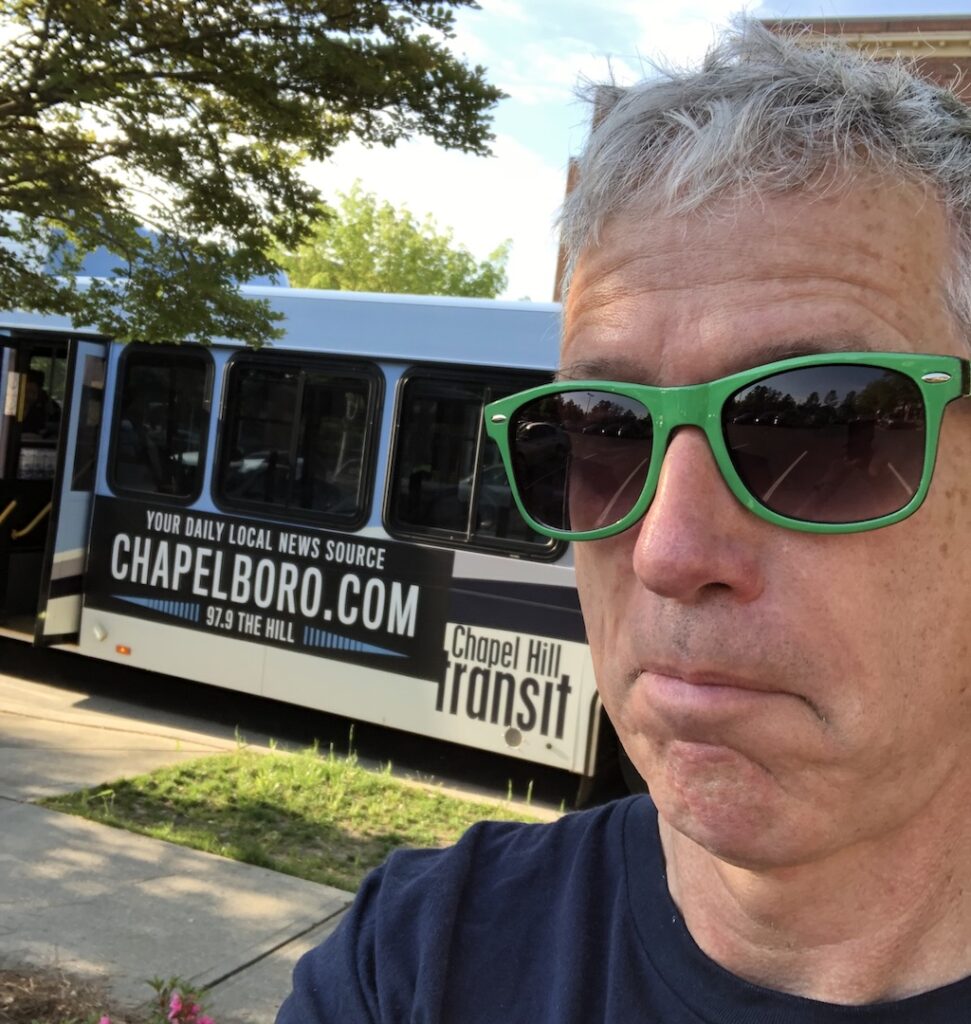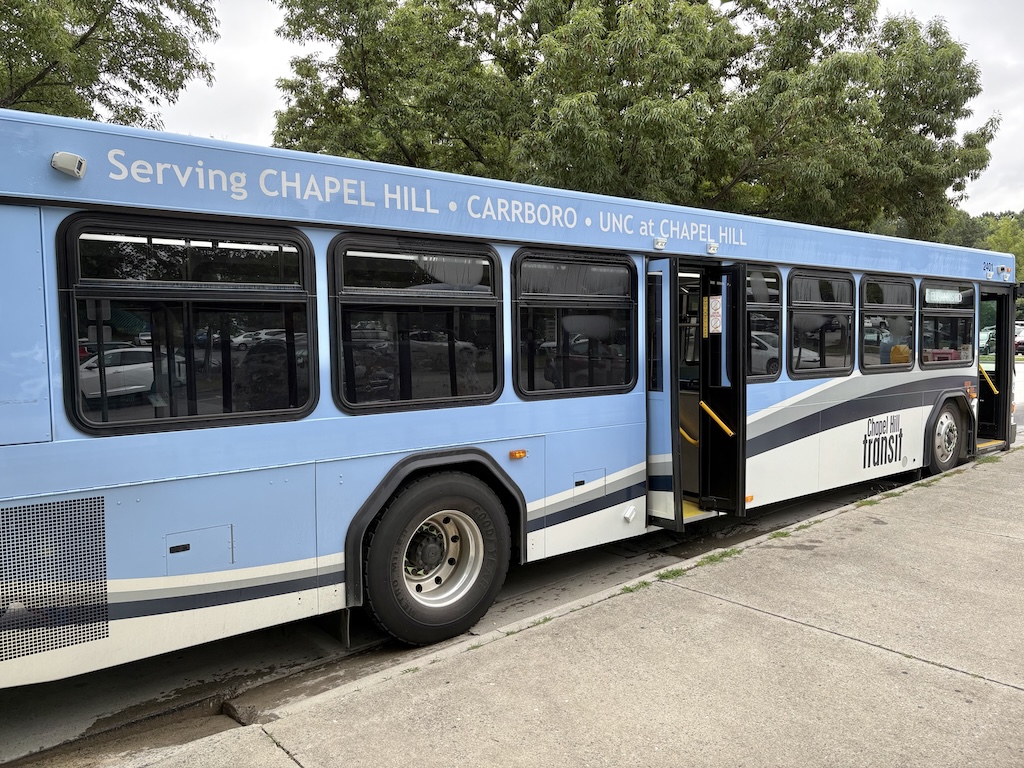Update 6/13 5:00PM. I have received more information from the Mayor’s office about transit funding I feel is important to add here: Source of this is here
“The Town’s share of cost for the Transit system is funded primarily by a property tax levy for transit. The cost share in the recommended budget for the Transit Fund in fiscal year 2025-26 is about $7.78 million. Also included in Town revenues are interest income and $450,000 for vehicle license fees.”

The neighborhood listserves are full of conversations about our towns budgets and tax rates. On my listserv, some people look at what is being spent on transit and spotted what they felt was a soft target for savings. It is possible such commenters have not used the transit system, and cannot see themselves using it. I shared this response below and decided, since we are still in budget season, to share it here also.
Some words of support to transit. It may be hard for people who rarely use transit, or maybe only occasionally use it when travelling to appreciate the value of it for a community. However Chapel Hill Transit provides a huge benefit to the town. You only have to look at any of the park and ride lots that encircle the town, and see how many cars are stored there on any average work day, to see how avoiding having them all come into the campus, downtown or hospital would affect traffic.
More and more, these buses are electric, so the benefit is even larger when you compare these buses to all the aforementioned cars idling at lights and creating peak hour congestion.
Buses help those less fortunate than us to get to work. Many employers, especially the university or downtown businesses, do not provide employee parking. Or, in some cases, charge for it and have lotteries to get the limited spaces available. Families who only have one car depend on transit. People who have impairments that prevent them from driving depend on transit. When I regularly commuted to RTP by bus, I often rode along with a person who used the NS bus plus a GoTriangle bus to reach their job in RTP. If it weren’t for transit, their spouse would have had to drive them there, affecting their ability to get to their job, or the added expense of using a cab or an Uber.
Adding fares is not the answer. Once you start having to handle money, you have to add the infrastructure (and people) to manage the money and payments. Yes, people can use apps to pay for transit, but again, not everyone has the latest phone that supports the latest transit payment app or a smartwatch.
Requiring fares also slows down boarding, and there are stops when it is not unusual for a half dozen or more riders boarding a buse at popular times. No matter how fast your payment system is, that will add time to the route. And, of course, you have transit rookies who will be asking the operator how much they need to pay.
Chapel Hill transit has honed their schedules, and continues to work towards improving routes and serving the town. Right here in Southern Village, just outside Weaver Street, you can board a bus that can take you to the hospital, to the Ackland, all the way to Timberlyne. You can connect to other buses along the way to get into Carrboro, or all the way to Raleigh.
In fact, I recently took a combination of two buses to get to downtown Raleigh to attend an important event. Yes, I do have a car, and I could have driven there. But by taking the bus, I had zero stress. When traffic built up on the I40, my bus got onto the shoulder and slipped past the logjams. Once in downtown Raleigh, I did not have to figure out where I would park because I didn’t have a car to park.

Transit serves so many people, and the University heavily subsidizes the system. I am sure everyone has seen them come into and out of Southern Village, and many of you reading this use them (thanks!) . If anyone is curious about the bus and wants to try it, or is worried about riding, feel free to contact me. I can help you work out a route and show you some tricks you can use to make it smoother.

Source of chart and lots of other budget and Chapel Hill Transit information
Sorry this ended up being so long, but you can tell that public transit means a lot to me.

“The annual budget is typically the strongest statement of the local agency’s priorities for the community.”

